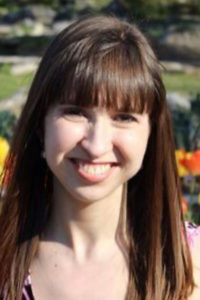
For Gretchen Winter, MD, self care is the key to living a happy and balanced life as a medical professional. Dr. Winter, who recently started her position as assistant professor at the University of Alabama at Birmingham, makes it a point to exercise regularly, ballroom dance, read, play piano, and spend time with her pets before and after work, and on the weekends.
“Dancing is super cathartic, and a lot of my research is in physician wellness,” Dr. Winter said. “I think it’s extremely important to engage in self care. Medicine is really hard and really busy, overwhelming, and stressful. Of course there are a lot of wonderful things about medicine, too, but no one ever said it was an easy job. In order to keep myself sane, I wholeheartedly believe that when I’m home, I need to take time for self care.”
Dr. Winter starts her day with a morning exercise routine and tends to her many pets before getting ready for the day. As a critical care physician, her days can vary—she spends time in the ICU, on the inpatient cystic fibrosis service, in clinics, teaching, and doing research.
Dr. Winter’s clinics are focused on bronchiectasis, and she has a particular interest in adult patients with cystic fibrosis, which is traditionally considered a pediatric disease.
“Due to medical advancements, patients with cystic fibrosis are now living well into adulthood,” she said. “Cystic fibrosis was often thought of as a pediatric disease, but now we need adult pulmonologists with an expertise in caring for these patients, as well.
When Dr. Winter worked with her mentor Dr. Elliot Dasenbrook at the Cleveland Clinic, they cared for both patients with cystic fibrosis and with bronchiectasis from other causes like chronic infection, aspiration, and autoimmune disease.
“Bronchiectasis caused by things other than cystic fibrosis is an interesting disease,” she said. “While some treatments are beneficial to both groups of patients, there are other treatments that vary between the diseases. There is a limited amount of research in non-CF bronchiectasis, so it’s really an interesting area to be involved in and learn how we can best help these patients.”
Part of Dr. Winter’s self care initiative (aside from maintaining a clean house for when she comes home at night) is learning how to say “no.” It’s a hard thing to say as a young faculty or early career professional, she mentioned, because you want to make everyone happy and help everyone out.
“You don’t want to turn down an opportunity that could potentially be good for you,” she said. “But I think it’s really important to learn to step back and ask ‘Is this going to benefit my career?’ ‘Is this is something have time for? It’s important to look at whether you’re really passionate about it and if you have the time, and if you don’t, say ‘I don’t think I have the bandwidth to give this project what it deserves.’”
Being a part of CHEST is something Dr. Winter dedicates her time to because she has identified it as beneficial for her career. She was just selected to serve on the CHEST Educator Development Subcommittee, serves as one of the CHEST Podcast editors, and has served as part of the Trainee Work Group the last 2 years. In her final year as a fellow she participated in the CHEST Challenge with the Cleveland Clinic.
“It was a great opportunity to use our competitive spirit to enhance learning,” she shared about the event. “And not only did it really help me prepare for my board exam, but I also made new friends and fostered new relationships. I just had a really good time!”
Through CHEST, Dr. Winter has also chaired sessions, presented research and case reports, and has had several “cool opportunities” to speak on a national level.
“I have met so many amazing peer mentors, and later career mentors, who have helped guide me in the process of becoming an attending, knowing how to say ‘no,’ and giving me opportunities to get involved with different projects that I am passionate about,” Dr. Winter said. “Those relationships that you develop through networking at CHEST and other professional organizations are really invaluable, both personally and professionally. I’m very thankful for all of those opportunities that CHEST has given me.”





